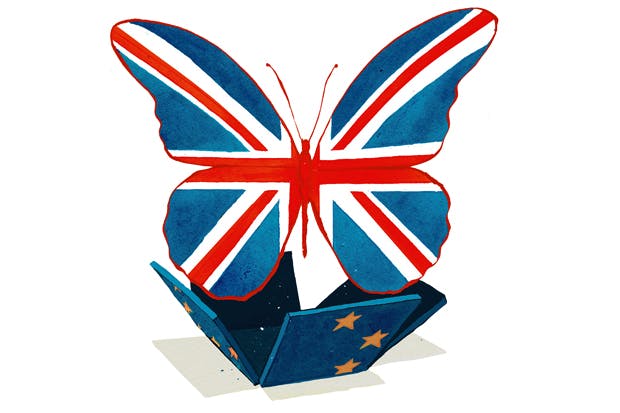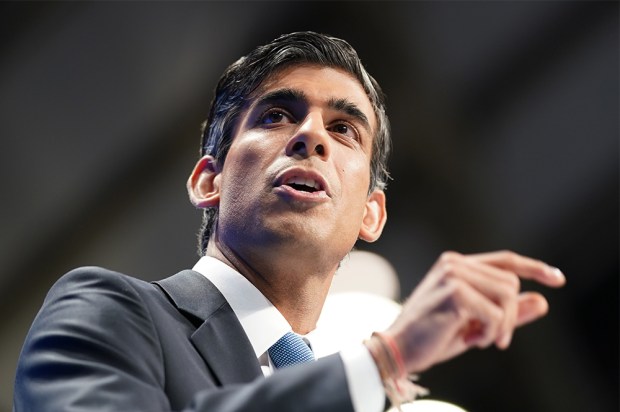Last Christmas, The Spectator set up an appeal — not for money to be given to charity, but for our readers to use what influence they have to offer internships for children selected by the Social Mobility Foundation. The response was wonderful. Offers arrived from across the country and, as a result, teenagers found themselves in barristers’ chambers, railway companies, even the royal household. It was such a success that we are repeating our appeal this year.
Several of our readers wrote in to make an interesting point: that while they were delighted to help, they could not pretend their motives were entirely charitable. There is great demand for young talent nowadays, so shrewd employers go the extra mile to find it. Gore Browne Investment Management, for example, said it saw in the Spectator scheme a chance to widen its net. It ended up offering a six-week (paid) internship to a student (selected by the SMF) and has asked her to get back in touch when she is looking for work.
This is how economies are supposed to function. When workers are scarce, companies should go to extra lengths to find them; they should pay them more and train them up. Yet at present we are used to hearing that we have a ‘skills crisis’ and a failure of border policy. Some blame the Brexit vote for European immigration falling; and it’s quite true that the rate of influx of workers, which started to soar after the EU expanded in 2004, is slowing. Our economy is changing. But if all this means that employers need to be more generous in pay and training, it’s hardly a problem.
The depressing political scene may lead us to forget it, but there is a striking amount of success in Britain at present. We close this year with wages rising at the highest rate for ten years, household disposable income at a record high, income inequality near a 30-year low, and unemployment heading towards a 50-year low. Much of Europe is menaced by populist parties, riots, bad banks or mass youth unemployment — but our problems have, this year, been mainly confined to Westminster.
A new economic phase may be starting, one which creates more opportunities for workers, to whom power is steadily shifting. For more than a decade employers have been able to hire who they like and pay what they like — but now economic growth is constrained by staff shortages. This means thinking again about untapped human resources: talented young people whose promise is not captured by their CV; older people who would like to keep on working; mothers who have been forced out of work by the highest childcare costs in Europe. To keep growing, companies will need to be imaginative about how to find — and train — the best people.
The last few months might be seen as a blip, set to be followed by a downturn. As with much of British politics, it’s hard to tell what will happen. The country stands at a crossroads with a government that is un-able to plot a course. Depending on whether there is a decent Brexit deal or not, next year could be a time of national renewal, or it could be marked by an implosion in Westminster that leads to economic disaster.
Britain is about the only country in Europe not to have a large populist party threatening to bring the whole show down. Across western democracies, voters are trying to find ways of telling the established parties that politics has moved on and that the globalist consensus formed in the late 1990s is outdated. The Brexit result was Britain’s way of forcing this adjustment — allaying the need for populists. The vote was intended as a chance of democratic renewal.
If this chance is passed up, if the Brexit project is abandoned or those who voted for it are made to feel they have been ignored or deceived, support for populism will follow. This will not be of the relatively benign, beer-swilling, Farage-style variety either. The inability of the Tories to replace their leader combined with the inability of the House of Commons agree on a Brexit deal may yet lead to a change of government, and we could be landed with the most left-wing prime minister of all time just at the moment when the constraints of EU membership are being lifted. The stakes have seldom been so high; nor the quality of political leadership — across all parties — so low. It is a worrying combination.
The recovery from the crash has been agonising, but we are now at the point where economic recovery could turn into accelerated social repair. With the right leadership, next year Britain could move beyond Brexit. A tantalising goal, if anyone has the gumption to reach for it.
Got something to add? Join the discussion and comment below.
Get 10 issues for just $10
Subscribe to The Spectator Australia today for the next 10 magazine issues, plus full online access, for just $10.
You might disagree with half of it, but you’ll enjoy reading all of it. Try your first month for free, then just $2 a week for the remainder of your first year.














Comments
Don't miss out
Join the conversation with other Spectator Australia readers. Subscribe to leave a comment.
SUBSCRIBEAlready a subscriber? Log in